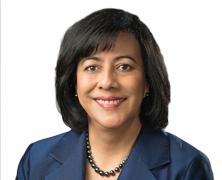I did not intentionally choose banking as a career. One of my college professors referred me to a large California regional bank. As I look back, it was the right choice. Thirty-six years later I am still enjoying my career.
Surprisingly, while my career choice may have been unintentional, all that followed has been. At the onset of my career, I completed a bank management training program along with other recent college graduates. I learned quickly you had to work hard, have a willingness to work extra hours, and accept additional projects. This has proven to be the best path for career advancement. I didn’t wait for opportunities to come; rather, I sought them out. I was willing to take risks when others were not.
Early on, I was mentored by a manager who encouraged me to volunteer when a position with increasing responsibilities became available. He advised me to always ask for the position, and if I wasn’t selected to ask why, then acquire training or experience that would prepare me for the next opportunity. I can still hear him say, “Don’t be complacent about your career—only you control where it will lead.”
I moved into agricultural lending, an uncommon career choice for a woman thirty six years ago, but it was interesting to me. I have had the good fortune to work with some of the best agricultural lenders and many successful agribusiness men and women in California who taught me the important aspects of the business.
In my career and volunteerism I have been a woman of firsts: the first senior vice president to manage the largest agricultural region in California for Bank of America, the first to serve as a division credit manager in agriculture for Bank of the West, and the first to chair a nine hundred-bed regional hospital system in central California with over one billion dollars in annual revenue.
I recommend to those at the beginning of their career or unhappy in their current position to choose an industry that is interesting to them. Be willing to educate yourself on topics that are important to your chosen industry. Become the expert in your organization. Ask for training in areas where you have little experience or education and don’t allow yourself to become stagnant.
Just as we can achieve much in business and create opportunities for ourselves and others, we can do the same in our communities. We need to make our communities a better place for future generations, so I encourage women to support nonprofit organizations of interest in their community.
What does it take to succeed and stay competitive in your position/field?
For all bankers a good understanding of financial analysis and accounting is important, but in agriculture you need a good understanding of various crop production, processing, and marketing.
Is there a role model who has had a profound impact on your career and/or life?
What did he/she motivate you to do? Both of my parents were great role models. They worked hard every day and taught all of their children the value of hard work. Both encouraged me to earn a college degree and to become self-reliant.







